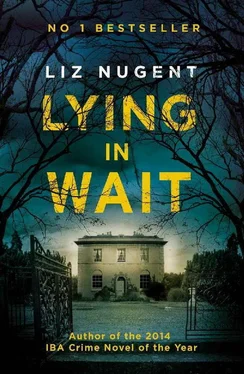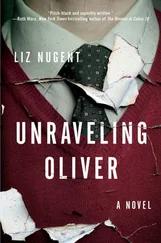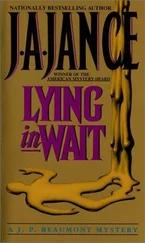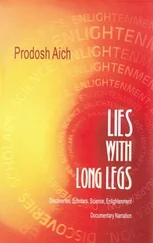Back at Avalon, Rosie and her brood handed out sandwiches to the forty or fifty people who milled around our reception rooms. I recognized two or three of the women from some outings I had endured in the distant past, and I wondered who had invited them all. The wives of Andrew’s former colleagues filled our freezer with stupid, useless casseroles and pies, all labelled neatly. They marvelled at the size of our home. A few boys from Laurence’s old school came, and that girl Helen was there, clinging on to Laurence every chance she got, but Laurence was taking care of me. A wizened priest wanted me to pray with him, but I couldn’t bear to be in the room with him, and Laurence led him away towards Eleanor, who was more accepting of his condolences.
In the wake of Andrew’s death, I found it impossible to climb out of the fog. I spent most of my days in bed, and when I ventured downstairs I stared at the television, trying to ignore the empty armchair beside me. I simply could not stop crying. Laurence would bring food on a tray and feed me like I was a baby, and I would eat mechanically, without tasting.
When my mother-in-law and Finn and Andrew’s friends telephoned to see how I was coping, I did not go to the phone but asked Laurence to take messages. I let the condolence cards pile up without opening them. I swallowed tranquillizers to blot out the pain, but really they just took the edge off it and stopped the rising panic that threatened to overwhelm me. I was forty-eight years old. Laurence was all I had now – my boy who was growing up way too fast. And I was terrified he would not want to be my baby for much longer.
After Laurence was born, I had nine miscarriages. They devastated me, every one of them, the pain and the loss and ultimately the fear. I carried one as far as four months, and we really thought we were safe then. I’d never held on longer than ten weeks before that. It was the glorious summer of 1977. We celebrated by having dinner in our favourite restaurant, Andrew, Laurence and I. And then, right after our dinner plates were removed, I felt that dreadful and familiar tearing in my womb and I doubled over in agony. Within seconds, pools of blood seeped on to the velvet-upholstered seat beneath me. Andrew realized quickly what was happening and carried me out to the car, leaving a dribbled trail of my insides on their plush carpet as we went. Fourteen-year-old Laurence was white-faced and crying, but even he knew. ‘Is it the baby, Mum? Is it?’
Usually, after the miscarriages, it took me a week or two to return from the dead place I occupied with my lost foetuses, but that time it was much longer.
Doctors could do nothing to help me. Three different adoption agencies turned us down. I assumed it would be a matter of making a generous donation, but there were all sorts of interviews where Andrew and I were grilled separately and then together. The questions were deeply intrusive. I told Andrew to use his status, but it didn’t seem to do any good. He pulled every string available to us, and although the first two agencies were not prepared to give their reasons for denying us a child, the third agency gave us a written report. They said that they thought I had not dealt properly with issues in my childhood, and they regretted that I might not be able to meet the needs of a new baby. They said it was strange that I had no close friendships and that I rarely left my family home. When I got that report in the post, I went straight into the agency and screamed blue murder at the woman on reception until she called security. Andrew came to take me home, and after that he insisted we couldn’t apply to any more agencies.
We had never given up on trying for our own baby, even when we had planned that Andrew would get that girl pregnant and pay her for the child. He had been supposed to find a young healthy girl who was poor enough to go along with it. The plan was that once she was pregnant he would visit the girl once a month and pay £200 per month of pregnancy and £500 on the baby’s arrival. A lot of money for a poor girl. A lot of money for us. Though the idea was straightforward, I had to plead with Andrew to go through with it. I had to beg him.
‘Doesn’t Laurence deserve a sibling? We’ll tell him that we were finally accepted by an adoption agency.’
‘If it ever came out, we would be disgraced,’ he said. I reassured him: who would believe that we would do such a thing? He still refused. ‘We can’t afford it,’ he said.
I sold the Mainie Jellett painting that Daddy had sworn would be worth something one day. I always thought it hideous, but Daddy was right about its value. Andrew still threw objections in the way. ‘How will I know I can trust a girl who would do something like this?’ he said.
I wish I had put more thought into the question of trust. It’s not like Andrew could march her into a doctor’s surgery for a pregnancy test. He was too well known. He suggested that I deal with her once she was pregnant, but that was out of the question. I did not know how to talk to those people. He was the one who saw them every day in the courts – ‘the dregs of society’ he called them. He only eventually agreed to it when I stopped eating for a week. But the plan was merely theoretical until we found the right woman. That was a lengthy process. It’s not something he could casually raise as a suggestion in the Four Courts. We couldn’t ask anyone for recommendations. Andrew had approached a few women, but he said they were either disgusted when he suggested dinner, or else they were interested in beginning an affair. Besides, they were the wrong type of women. Middle class or too old.
Then, one night out of the blue, he told me about a young woman he had caught red-handed lifting his wallet as he bought a newspaper at a kiosk on the street that afternoon. She begged him to let her go, said she’d do anything he wanted. She cried and pleaded with him. She said she needed the money to buy medicine for her sick little sister. He took pity on her, gave her £5 and drove her home.
‘You believed her?’ I asked him.
‘Not really, but she seemed desperate.’
When he said the word ‘desperate’, it all fell into place for me.
‘What age was she? Did she look healthy?’
Andrew immediately understood my questions, and shook his head. ‘Please, Lydia, I know where you’re going with this and I don’t like it.’
‘Are you shaking your head because she didn’t look healthy?’
‘No, she’s young and fit, but—’
‘Does she know who you are?’ I asked.
‘No.’
‘Do you think the place you dropped her off was her real home?’
‘I doubt it, unless she lives above a pub called the Viking.’
‘You have to find her. She sounds like a perfect candidate.’
He argued against it. He said that he didn’t want the mother of his child to be a thief.
‘I will be the mother of the child. Find her.’
He found her easily enough within a few weeks. She was leaving the Viking. He asked her to get into his car and she did.
It had been a perfect plan, but as it turned out, Annie Doyle was an addict and a prostitute with a harelip who slept with my husband four times and then said she was pregnant. But she wanted more money than he was offering. She demanded £300 per month, and £600 when the baby was born. After five months and £1,500, he admitted there was no sign of a bump. The girl couldn’t or wouldn’t produce any document to confirm that she was pregnant. So I forced him to confront her that night, and of course the stupid little thief admitted that she wasn’t pregnant at all, and said that she’d go to the papers with her story of how a high court judge had paid her for sex and tried to buy her baby. She was utterly shameless. I couldn’t believe that she would be so dishonest and so cruel, but I didn’t know then that she was a heroin addict and a prostitute. Not until she was dead. I have since read that nearly all prostitutes are heroin addicts, and addicts are capable of anything.
Читать дальше












